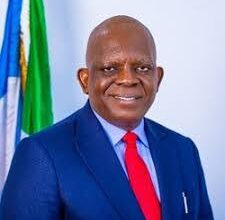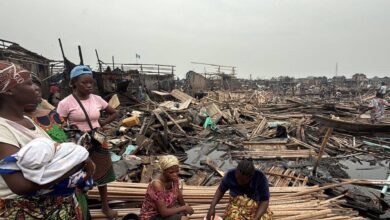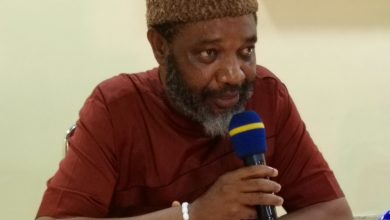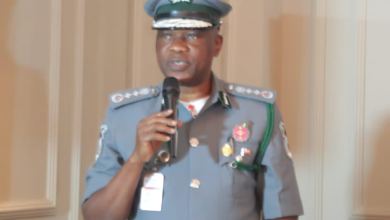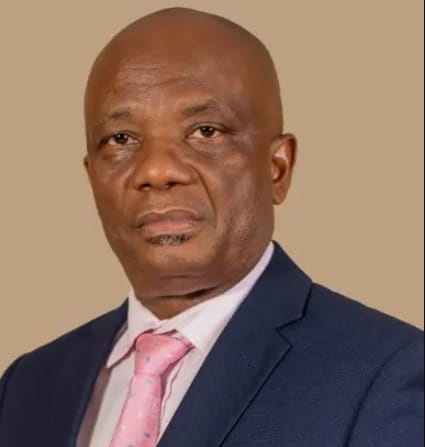
The Secretary General of the Memorandum of Understanding on Port State Control for West and Central African Region (Abuja MoU), Capt. Sunday Umoren has described activities of substandard ships within the maritime space as inimical to human safety and blue economy
Addressing participants at the 14th Port State Committee Meeting held in Brazzaville, Congo, on 10th-12th September, 2024 , Capt. Umoren explained that ships that are below standard pose as threat to human life, constitute
risk to the marine environment with attending negative impact on the blue economy
He explained further that such vessels pose as threat to means of livelihood while adversely affecting actors in the maritime clusters
According to him,such ships also constitute threat and exposure of maritime facilities and assets while also endangering the cargo they carry.
Umoren added that negative economic impact caused by such ships affect revenue, return on investment and are capable of causing disruption of supplies leading to increased financial and asset related risks which are not limited to the ship owner.
since it’s inception, the Abuja MoU ,Nigeria’s maritime sector has experienced significant growth, which has brought with it both opportunities and challenges.
“Our shared mission—to reduce substandard shipping, ensure safer seas, and protect the marine environment—has driven our actions and decisions over the years. Our progress is significant, and I want to take this moment to acknowledge the dedication, hard work, and unwavering commitment of all member states and stakeholders who have contributed to our shared success”
He said Abuja MoU has played a crucial role in fostering collaboration with other regional and international bodies, ensuring that it’s standards align with global best practices.
He informed the delegates that the annual meeting is important in raising awareness and in sustaining the efforts of Port State Control regime in the safeguarding of the Blue economy sector.
“We cannot talk about the sustainability of the global supply chain without mentioning and acknowledging the great work of our Port State Control Officers. We are happy that IMO had accepted Seafarers as critical worker and I believe the time is right for Port State Control officers to be recognized as critical worker”
“We have to be strategic and intentional in ensuring that lives (both human and aquatic), the assets and the maritime environment are preserved”
He identified the primary responsibility of the PSCOs as the elimination of substandard ships.
According to him, “Substandard ships come along with a lot of baggage and consequences which principally include: Threat to Human Life, Risk to the Marine Environment and attending negative impact on Blue Economy and sustainable use, exploitation / exploration thereof,Threat and Risks to means of livelihood (affecting actors in the maritime clusters), Threat and exposure of Maritime Facilities (assets and related interfaces), Risk to Cargo,Negative Economic impact (affected revenue, negative impact on ROI / bottom line),Severe Knock-on effects (disruption of supplies), Financial and asset related risks – not limited to the ship owner with varying extents of liability for the accidents plus insurance, Undermining IMO’s initiative of “Safer Seas and Cleaner Oceans”.
Sunday Umoren noted revealed critical phases in the delivery of the Committee mandates .He highlighted the mandates as : “Getting the Countries in the region to sign up as full members,getting the member States to commence inspection, enuring that Inspections are conducted objectively using the NIR and meeting the minimum percentage (%) and in line with approved Code of Conduct, Uploading the inspection report into the AMIS database and training and re-training of the PSCOs to keep them abreast of the currency of the conventions and guidelines”
The Abuja MoU Secretary General noted that the secretariat has over the period invested and embarked on several trainings which included Training on ethical conduct of inspection, a collaborative effort between Abuja MoU and MACN under the sponsorship of Danish Government sponsorship.
He announced that another collaborative training was the training on MLC 2006 which was a brought about by the collaboration between ABUJA MoU, ILO and the Cameroonian Ministry of Transport.
“We are aware of the fact that in some Maritime Administration that the inspections on IMO (MSC and MEPC) and ILO Conventions are handled my different departments and often by different HEADS, however, while acknowledging the best options of capturing them under one department and thus limiting the number of PSCOs visiting a vessel for inspections, we respect the Administration’s right to adopting a model that works for them. However, you are advised to ensure that these arrangements do not create a vacuum that will benefit managers and operators of sub-standard ships”
He recalled that following discussions at PSCWS 8, the Workshop recommended to that the III Sub-Committee and invited Member States and PSC regimes share their experience in the effective implementation of mandatory provisions.
“Port State Regime is not an individual score card thing but a win-win regional scorecard through harmonization of processes and procedure and unrelenting effort by all to ensure no-one being left behind. We are to have same knowledge level and thus the need for constant interactions through trainings, workshops and seminars. This calls for the need to have a structured learning program which will be shown in the provision and adoption of a training policy”
Umoren mentioned that with IMO drive on Gender Equality in the Maritime sector, the Committee has instituted an award to honour MARADs with strong focus on women in their Administration with highest number of female PSCOs.
He said on the need to be more proactive, the Committee is strongly reminding member States and PSCOs on the importance to draw a roadmap on the following topical issues: Fishing vessels related to Cape Town Agreement, MASS, Cyber security and Risks, Piracy and sea robberies against ships, Safety on domestic ferries, Domestic Ferry Safety.
“We have had 14 PSC meetings within the 25yrs of Abuja MoU’s existence to which Congo Brazzaville and Nigeria have both held 3 meetings, Ghana- 2, and Senegal, South Africa, Benin, Gabon, The Gambia, Cote D’Iviore hosted 1 meeting each. The race is on for other member States to take up this responsibility”
He emphasized that the time has come to work together in re-positioning the AMOU.
“We had started this effort at my resumption and this was commenced with the internal rebranding. The internal rebranding included but not limited to the review and presentation of our Mission and Vision Statements, the introduction of our Core Values, the rebranding of our websites and the drive for quality service to our stakeholders with the eventual obtaining of our ISO 9001/2015 certification” he said .






